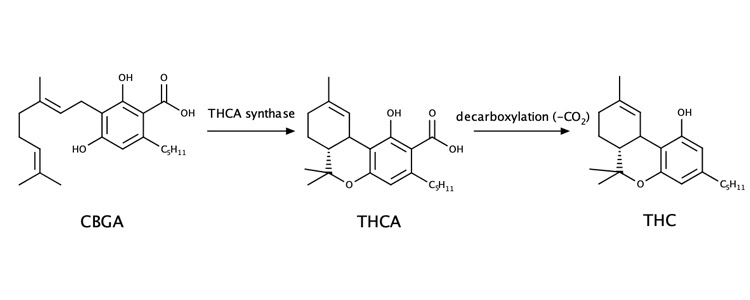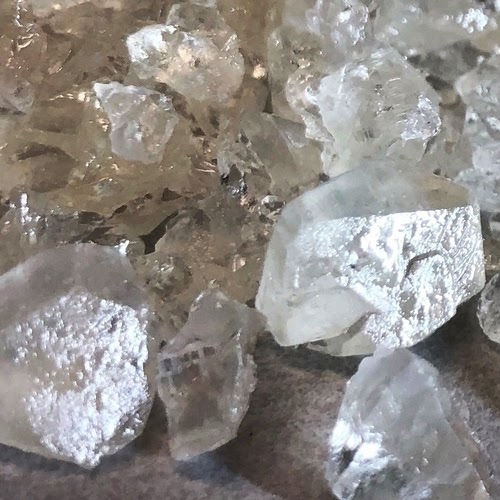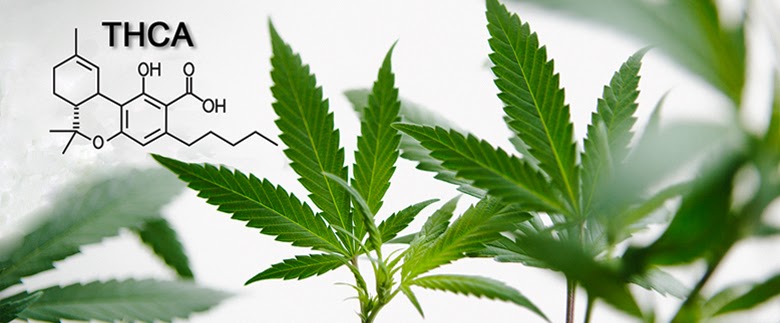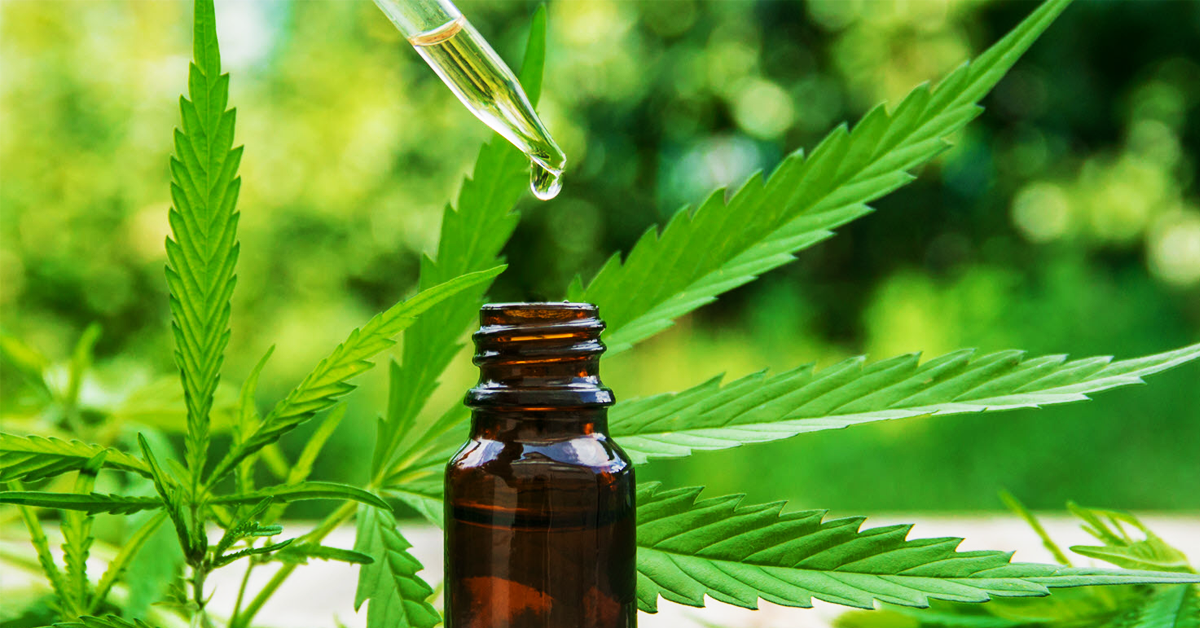The world of cannabis remains unexplored and mysterious as researchers all over the world try to discover the magical plants. Every year, there are bouts of news involving cannabis and new development. From unique compounds to major medical breakthroughs, cannabis is one such plant that has never ceased to amaze humankind. With many more hidden benefits and exciting compounds, it is only fair that we keep on with the updates.
In this article, we will be talking about THC vs THCA.
If you're a little familiar with cannabis plants, I'm pretty sure you have heard about CBD and THC. Namely, Cannabidiol & Tetrahydrocannabinol, these two are the main components of the green herbs which makes us value them so much. CBD contributes to the medicinal properties without the additional high while THC is what makes you completely baked.
Today, we are concentrating on just one of the main components of the plant - THC. Let's understand how we come across THC and what role THCA plays in it.
When cannabis is raw and newly harvested, there are none of the famous intoxicating compounds, which we all love, present in it. The important delta-9-tetrahydrocannabinol (THC) absence from the raw cannabis plants makes you question a lot about its effects. Researchers have found that instead of the THC compound, the tetrahydrocannabinolic acid (THCA) is abundantly present in raw marijuana.
Now what is THCA and how is it related to THC? Let's answer all your doubts.
THCA vs THC - What is THCA?
To speak to the point, THCA is the acidic precursor of THC. It is a non-intoxicating compound which holds many medicinal benefits for the human body and plant and lives within the trichomes of the green plant. Raw cannabis holds its compounds in an acidic form, synthesizing tetrahydrocannabinolic acid (THCA) and cannabidiolic acid (CBDA) from their cannabigerolic acid (CBGA) precursor.
THCA, as a precursor, is converted into THC when exposed to heat, which is why you decarboxylate your weed before making brownies. When heated or due to other driving forces, the THCA goes through thermal decarboxylation which makes it lose its acidic carbonyl group (-COOH at the end of the chain), thereby converting into THC.
So now that you know the process of THCA into THC, you may wonder why does THCA not interact with our body in the same way as THC does? Why is the intoxicating compound not active in its acidic form?
The answer is quite simple.

THCA has an additional acidic carbonyl group which gives the THCA molecule a three-dimensional shape. The larger molecule finds it impossible to fit into the endocannabinoid system and cannabinoid receptors, particularly CB1. Since it is important to fit into the CB1 receptors to have an intoxicating effect, raw cannabis does not hold intoxicating properties.
On the other hand, when heated, THCA loses the additional acid group of atoms, and the altered chemical structure makes it a perfect fit into the endocannabinoid system and CB1 receptors, giving you the high that you very much love.
THCA vs THC - THCA & Potency
Since THCA is a precursor of THC, it is naturally considered when calculating the potency of a cannabis strain, even though THCA is non-intoxicating.
When the THCA is decarboxylated to convert it into the THC, it loses a noticeable amount of weight as the THCA molecules lose their carbonyl groups en masse. To determine the true potency of a strain, it is important not to overlook this significant loss of weight. Generally, the potency calculation formula looks like this.
THC total = (% THCA) x [final mass/initial mass] + (% THC)
This gives you an accurate estimation of the THC present in raw cannabis, also known as maximum THC. When you smoke raw cannabis flowers, it is generally accepted that not all THCA is converted into THC. Researchers and studies suggest that somewhere between 30-70% of the THCA from raw cannabis may not be converted into THC while smoking.
THCA vs THC - THCA and Cannabis Plants
THCA does not only have benefits for the human body but also possesses a list of advantages for our green friends.
When it comes to the cannabis plant, researchers have found that THCA shields the leaves from the harmful UV-B light radiation. And if you think that is impressive, THCA also produces necrosis in the leaves. Now, what's that?
As mentioned before, THCA is present on the trichomes resin glands which are located on the surface of the cannabis leaves and flowers. When the THCA secretes necrosis, it makes the dead or damaged cells die. THCA acts as an immune system that recycles the plant's nutrients by taking them to other parts of the plant. The necrosis also protects the plant from microbial pathogens.
How to consume THCA?

THCA makes the cannabis plant a superfood and the ways to consume them are as wide as your creativity allows it to be. Whether you like the green juices or like it like a green veggie in your salad, dressing, sauces, and much more; there are many ways you can innovatively add the THCA in your everyday meal. Just remember, you have to keep it away from the heat to avoid the conversion of THCA into THC. Like any other cannabis consumption, start small and then slowly increase your dosage to get the desired benefit.
If raw cannabis flowers are inaccessible to you, there are many other methods of consumption. For example, tinctures and THCA crystallines are made using cold extraction methods which maintain the THCA in its original form. You can consume tinctures by adding them in your drink, sublingually.
As for THCA crystalline, you can easily break them into a powder and add it to any food item. You can also get pre-made raw cannabis edibles in any of the head shops with precise dosing information.
This was all about THC vs. THCA. I hope you found this useful.
Feel free to ask your doubts and questions in the comment section below.
Till then, keep toking with Olivastu.



![[UPDATED]Cannabis-Infused Butter Recipe: How To Make Cannabutter?](https://www.olivastu.com/media/magefan_blog/Olivastu_Blog_1200x628_20200421.png)
